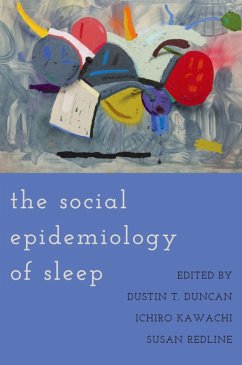AN ESSENTIAL NEW RESOURCE ON A FUNDAMENTAL DETERMINANT OF HEALTH Sleep, along with the sleep-related behaviors that impact sleep quality, have emerged as significant determinants of health and well-being across populations. An emerging body of research has confirmed that sleep is strongly socially patterned, following trends along lines of socioeconomic status, race, immigration status, age, work, and geography.
The Social Epidemiology of Sleep serves as both an introduction to sleep epidemiology and a synthesis of the most important and exciting research to date, including: ? An introduction to sleep epidemiology, including methods of assessment and their validity, the descriptive epidemiology of sleep patterns and disorders, associations with health, and basic biology ? What we know about the variation of sleep patterns and disorders across populations, including consideration of sleep across the lifespan and within special populations ? Major social determinants of sleep (including socioeconomic status, immigration status, neighborhood contexts, and others) based on the accumulated research With editors from both population science and medicine, combined with contributions from psychology, sociology, demography, geography, social epidemiology, and medicine, this text codifies a new field at the intersection of how we sleep and the social and behavioral factors that influence it.
Dieser Download kann aus rechtlichen Gründen nur mit Rechnungsadresse in A, B, BG, CY, CZ, D, DK, EW, E, FIN, F, GR, HR, H, IRL, I, LT, L, LR, M, NL, PL, P, R, S, SLO, SK ausgeliefert werden.


